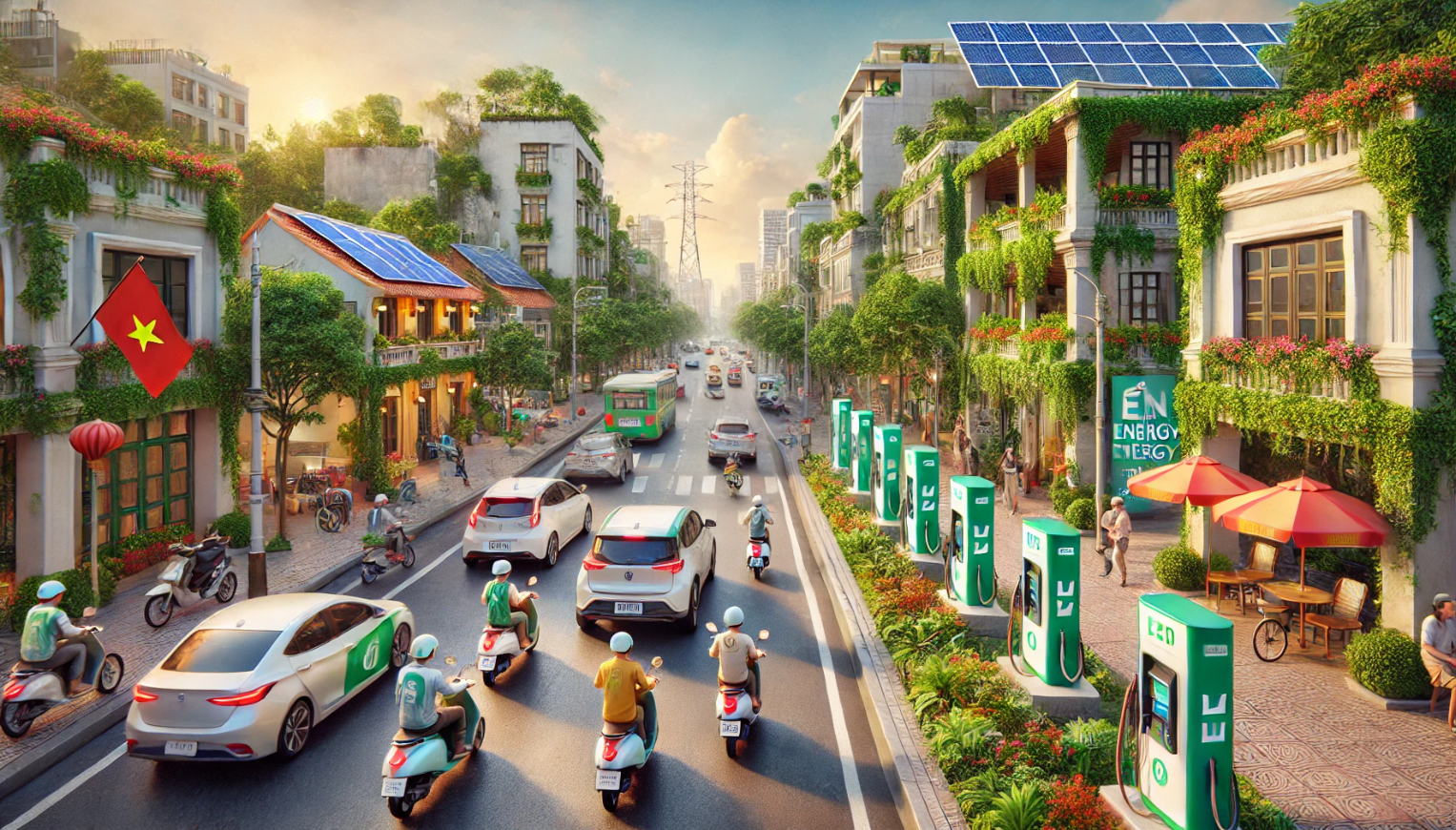Electric Vehicles: A Key to Vietnam’s Green Transition and Economic Savings
Published: 11.26.2024
Vietnam's shift to EVs is poised to deliver benefits to both the environment and the economy. By embracing EVs, the nation aims to slash greenhouse gas emissions while significantly reducing its dependence on costly fossil fuel imports.

A comprehensive World Bank report envisions a future where Vietnam could sell a staggering 78 million EVs by 2050. This transition would not only bolster energy security but also unlock significant economic advantages. The report highlights the immediate impact of EV adoption: in 2022 alone, the use of two-wheeled EVs resulted in a remarkable 390 million-liter reduction in gasoline consumption.
If Vietnam successfully meets its policy targets by 2050, the cumulative savings could be even more dramatic. Experts estimate that EV adoption could lead to a reduction of 360 billion liters of combined gasoline and diesel consumption. This substantial decrease in fossil fuel imports would not only save billions of dollars but also position Vietnam as a global leader in sustainable transportation.
Economic and Environmental Benefits of Vietnam's EV Transition
Beyond its impact on greenhouse gas emissions, Vietnam's electric vehicle (EV) revolution is poised to significantly bolster the nation's economy and improve public health.
Job Creation: The EV transition is expected to generate approximately 6.5 million jobs by 2050, spanning manufacturing, maintenance, and repair sectors.
Reduced Environmental Costs: By curbing air pollution, Vietnam can save substantial sums: $30 million annually by 2030 and up to $6.4 billion by 2050.
Emission Reductions: While initial EV adoption will focus on two-wheeled vehicles, the shift to electric cars, trucks, and buses after 2035 will accelerate emissions reductions. By 2050, greenhouse gas emissions could be slashed by 60% compared to business-as-usual scenarios.
While Vietnam's power grid currently relies heavily on fossil fuels, the country's ambitious energy and environmental goals are well-aligned with its EV transition. EVs, with their superior energy efficiency, can offset emissions from electricity generation, resulting in a net reduction in overall emissions.
By accelerating the adoption of renewable energy sources, Vietnam can further amplify the positive environmental impact of EVs. This synergistic approach positions EVs as a crucial catalyst for sustainable development, not only reducing pollution but also fostering a cleaner, greener future.


.png)

